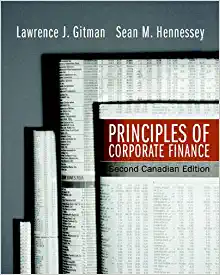Question
TF1.The futures price of a non-storable asset is determined by the cost of carry. TF2.The risk-free rate is missing from d 1 in the Black
TF1.The futures price of a non-storable asset is determined by the cost of carry.
TF2.The risk-free rate is missing from d1 in the Black model because it is effectively zero.
TF3.A synthetic put option on futures could be constructed by buying a call option on futures and selling the futures.
TF4.The daily settlement brings the value of a futures contract back to zero.
TF5.Value is created in a futures contract with the passage of time.
TF6.The Black formula prices an option on an instrument with a positive cost of carry.
TF7.The dividends that are subtracted from the cost of storage to determine the cost of carry are actually the present value of future dividends.
TF8.The cost of carry futures pricing model requires that investors be able to sell short the commodity.
TF9.A normal market in which the futures price exceeds the spot price is described as a contango.
TF10.A convenience yield is an explanation for a negative cost of carry.
TF11.Normal backwardation and contango are mutually exclusive conditions for a market.
TF12.In financial futures markets, contango means that long-term interest rates are less than short-term interest rates.
TF13.A market in which the futures price is said to be unbiased is also a market in which there is a risk premium.
TF14.The Black-Scholes-Merton formula can be used in place of the Black formula if you use the futures price for the stock price and a risk-free rate of zero.
TF15.If the exercise price equals the futures price, a put on the futures will have the same price as a call on the futures.
TF16.Holding everything else constant, dividends or interest on the underlying commodity would make a futures price be higher.
TF17.The price of a futures spread reflects the cost of carry until the time the spread is closed.
TF18.If one buys an asset, sells a futures, and holds the position until expiration, it is equivalent to selling the asset at the original futures price.
Step by Step Solution
There are 3 Steps involved in it
Step: 1

Get Instant Access to Expert-Tailored Solutions
See step-by-step solutions with expert insights and AI powered tools for academic success
Step: 2

Step: 3

Ace Your Homework with AI
Get the answers you need in no time with our AI-driven, step-by-step assistance
Get Started


